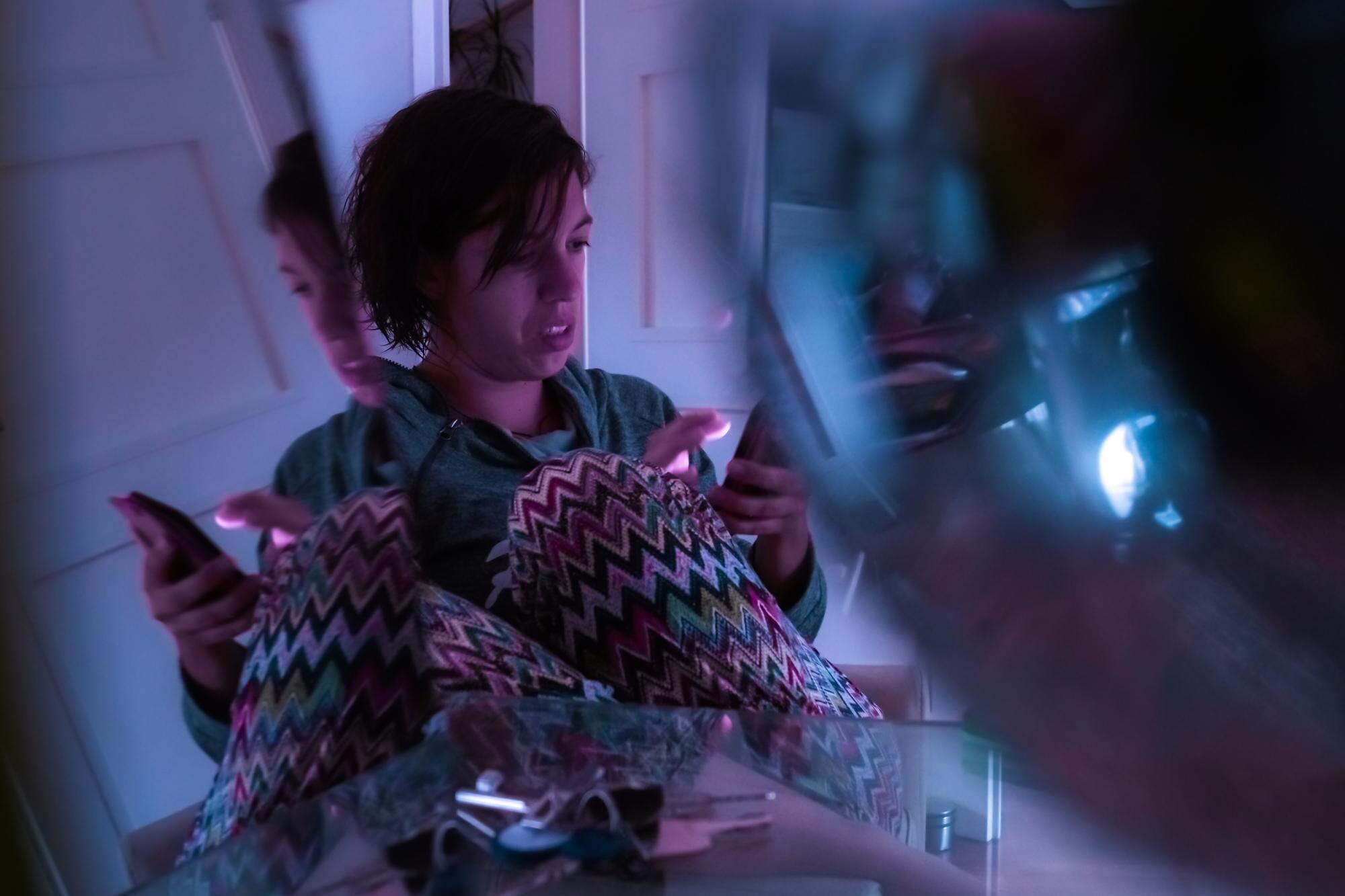Screen Time: The Modern Addiction That Mirrors Traditional Habits
Screen time addiction isn’t just a harmless habit—it mirrors the grip of traditional addictions in ways you might not expect. Your brain reacts similarly to constant scrolling as it does to other addictive behaviours, trapping you in a cycle that feels impossible to break. Understanding these patterns is the first step toward change. Let’s explore how hypnotherapy for screen time offers a gentle yet powerful path to overcome screen time addiction and reclaim your balance. Read more on the impacts of screen time addiction.
“`markdown
## Understanding Modern Addiction
{mediaFileId=”LvlGJs3NJ8y3cdMMAAvhwvVaKeNYS9QX”}
Everywhere you look, screens are glowing. But how is this constant exposure affecting you?
### Screen Time and Traditional Addictions
Consider this: scrolling through your phone for hours might be more similar to traditional addictions than you think. Both involve a cycle of desire and reward that can trap you. Studies show that excessive screen use can mirror the patterns of substance addiction, constantly pulling you back for more. [Research reveals the potential risks of this behaviour](https://news.weill.cornell.edu/news/2025/06/study-finds-addictive-screen-use-not-total-screen-time-linked-to-youth-suicide-risk).
These findings suggest that screen time addiction is serious. But recognising it is the first step to change. When you understand how these patterns develop, you can start to break free.
### The Brain’s Reaction to Screen Time
Your brain craves stimulation. The more you feed it with screens, the more it wants. This creates a loop similar to traditional addictions. Dopamine, the chemical responsible for pleasure, gets released every time you engage with your screen. This keeps you coming back for more.
Think of it as a slot machine in your pocket—every scroll is a pull of the lever. This insight is crucial because it highlights why you keep returning to screens even when you want to stop. [Learn more about how your brain reacts to screen time](https://pmc.ncbi.nlm.nih.gov/articles/PMC10504808/).
### Breaking the Cycle of Addiction
So, how do you break free? Awareness is your first tool. By recognising these patterns, you empower yourself. Change starts with small steps—like setting screen time limits or finding screen-free activities you enjoy. These actions can begin to disrupt the cycle.
You might think it’s impossible to change, but every step you take is progress. Once you start, you’ll find more freedom than you imagined.
## Hypnotherapy for Screen Time
{mediaFileId=”0dRBhkctyhzhRkMQlxvovNF10ooVnHJH”}
You might be wondering, “How can hypnotherapy help with screen time?” Let’s dive in.
### Benefits of RTT Hypnotherapy
Rapid Transformational Therapy (RTT) offers a unique approach to tackling screen time addiction. It combines clinical hypnotherapy with cognitive techniques to address deep-rooted patterns. RTT helps you reprogram your mind, changing your relationship with screens.
Imagine feeling in control, no longer tied to your device. This method not only targets the habit but also addresses the emotional triggers behind it. With RTT, you don’t just stop a behaviour; you transform your mindset. [Discover more about how RTT can help](https://www.sciencedirect.com/science/article/pii/S0747563224003480).
### Overcoming Screen Time Addiction
Overcoming screen time addiction involves more than just willpower. RTT hypnotherapy guides you through a process of understanding and change. By tapping into your subconscious, RTT helps you uncover the reasons behind your screen use. This awareness is a powerful tool for change.
Most people think it’s just about cutting down screen time, but RTT teaches you to address the root cause. This not only helps you reduce usage but also empowers you to make healthier choices.
### Personal Transformation with Hypnotherapy
Imagine waking up feeling refreshed, not reaching for your phone first thing. Hypnotherapy can make this a reality. Through personal sessions and tailored audio recordings, RTT supports lasting change. You gain clarity and control over your habits.
Here’s the key insight: it’s not just about reducing screen time; it’s about reclaiming your life. RTT empowers you to transform from the inside out, offering a path to a balanced, fulfilling life.
## Steps to Reclaim Balance
{mediaFileId=”6qZcb4BZd2jMHQ9JxUSwy4DgFfr5fzeh”}
Ready to take action? Here’s how you can start reclaiming your balance.
### Practical Tips to Break Free
1. **Set Boundaries:** Create specific screen-free times each day.
2. **Find Alternatives:** Engage in hobbies or activities that don’t involve screens.
3. **Stay Mindful:** Pay attention to when and why you reach for your device.
These steps might seem small, but they lay the foundation for lasting change. The longer you wait, the harder it becomes to break free, so start today.
### Seeking Support and Guidance
Sometimes, you need support to make a change. Seeking guidance from a professional can offer the insight and tools you need. Hypnotherapy sessions provide a safe space to explore your patterns and find solutions tailored to you.
Most people think they should handle it alone, but reaching out shows strength. You’re not just getting help; you’re investing in your future.
### The Path to Freedom from Screen Addiction
Imagine a life where you’re in control, not your screen. This is possible with the right tools and support. By incorporating RTT hypnotherapy and practical strategies, you pave the way to freedom. Reclaim your time and energy for what truly matters.
Here’s the key takeaway: change begins with one step. Whether it’s setting a boundary or seeking hypnotherapy, each action brings you closer to freedom.
🌟✨

